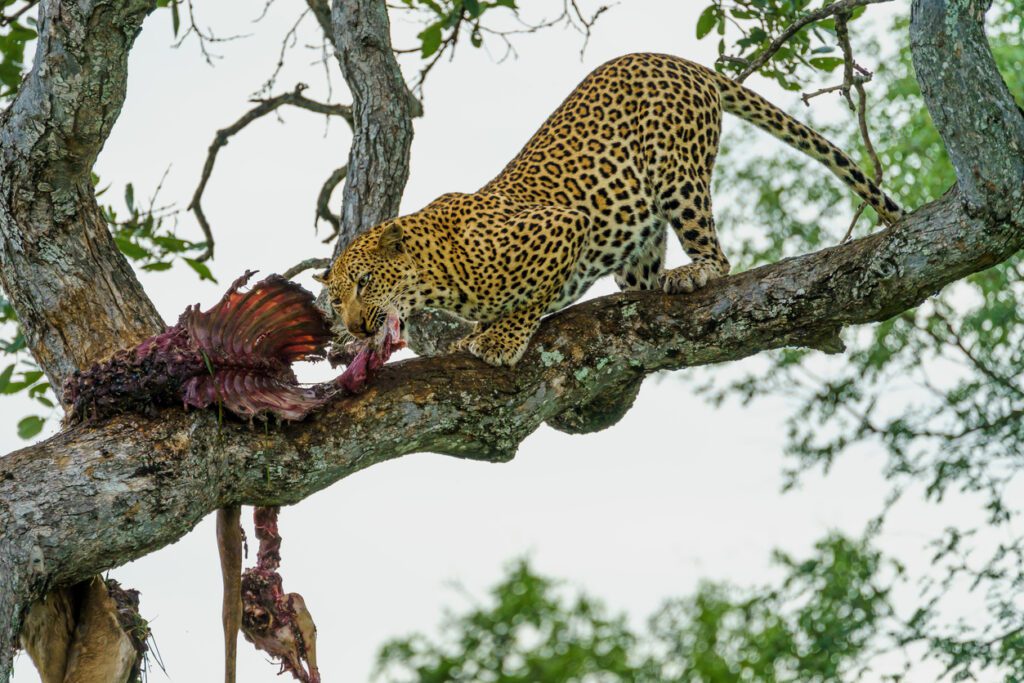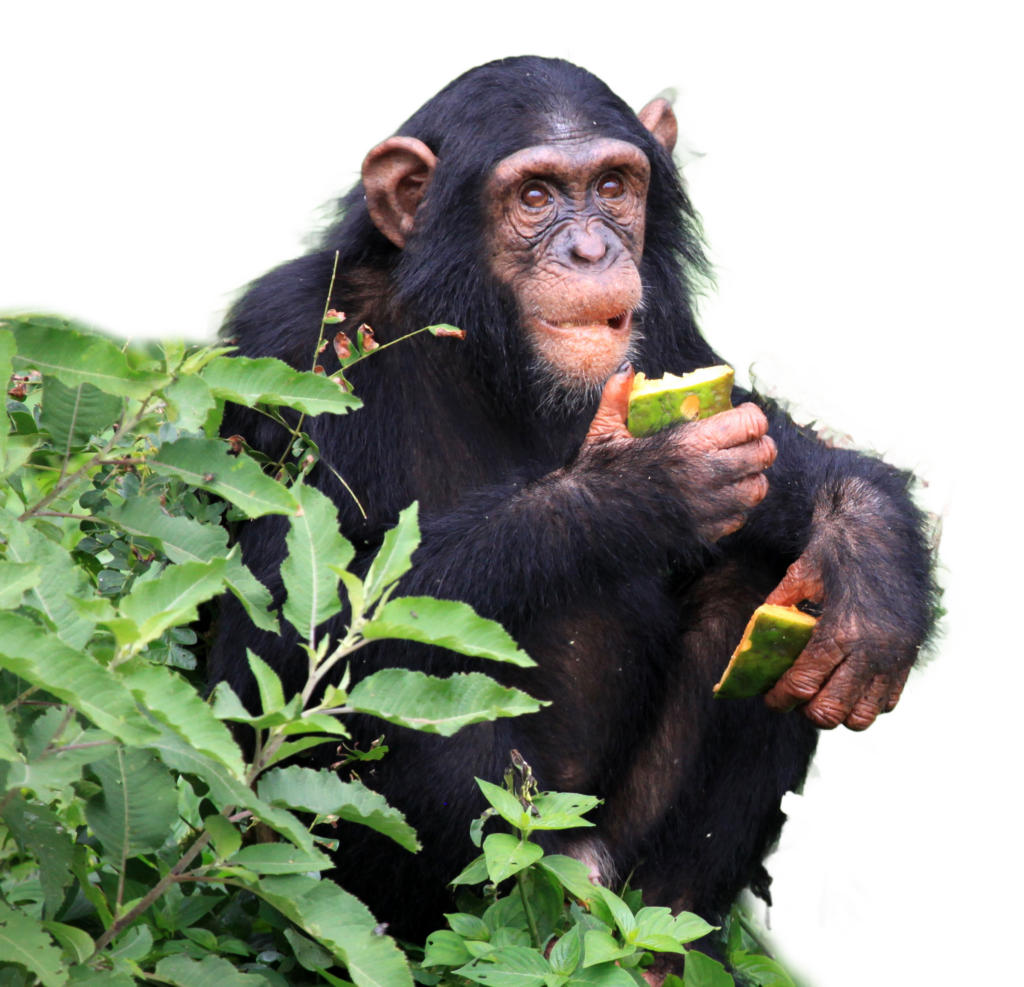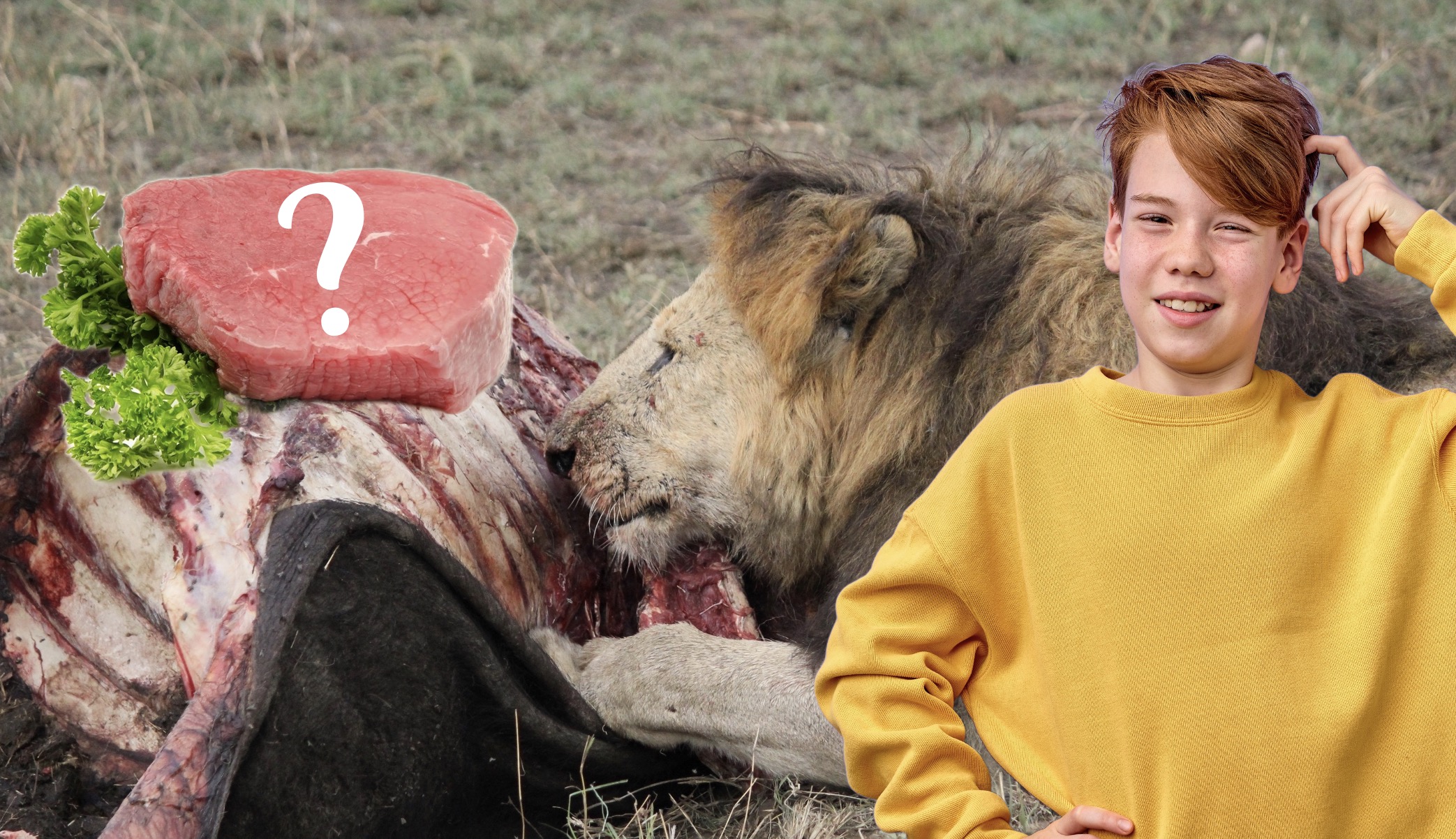The “carnivore diet” has become popular lately. The diet often brings short-term health benefits because adopting this diet means leaving out all the toxic plant-protective anti-nutrients and irritants of a “standard diet.” Most diets are heavily based on grains, nightshade vegetables, and other plants with inflammatory components (read more here). Therefore, it makes sense to avoid those types of foods that were – originally – not edible for humans as they are not evolutionary foods.
However, a high-meat diet is certainly not the healthiest solution for this problem, given our biological setup as omnivorous frugivores! In the long run, the carnivore diet is a risky idea! Not only can it damage the kidneys and put ketogenic stress on the body, but it is also severely deficient in nutrients from raw plant foods, including vitamin C, as we discuss here. Gout and scurvy are historical examples of what happens on a high-meat diet!
The carnivore diet takes meat consumption to a worrisome extreme. No fresh pant produce, like fruits and greens, can lead to a critical lack of nutrients. After all, even obligate carnivores ingest plant matter on a regular basis!
But this article focuses on the straightforward case of vitamin C in the carnivore diet:
Carnivores produce their vitamin C internally
When it comes to the carnivore diet, the largest pink elephant in the room here is that humans are not biological carnivores! We are biologically not adapted to a carnivorous diet!
Humans are omnivorous frugivores, which obligatorily need to take in Vitamin C from foods. Carnivores produce the vital compound themselves (they have a functional GULO gene) and do not need it in their diet! Many frugivores can digest small amounts of animal foods, however, not a full-meat or animal-food diet!

Claims that meat contains enough vitamin C are hard to hold up, in the light that biological carnivores and omnivores need to produce their vitamin C internally!
Vitamin C is only contained in fresh, raw meat, not in cooked meat!
Obtaining vitamin C from meat would require people to eat raw meat because vitamin C is destroyed by heating and cooking. An idea that instinctually makes us feel disgusted as a protective mechanism. However, eating their animal foods raw is how Inuits survive in an environment without plant-based foods – but their life expectancy on the traditional diet is low. True biological carnivores – like lions – produce vitamin C internally because raw meat seems not to be a sufficient source.
To no surprise, lately, the carnivore community has started to adopt the idea of a “meat and fruit” diet to obtain the nutrition from raw foods and the nutrition we absolutely need for health as highly frugivorous beings! Fruits do not contain harmful phyto-compounds, like grains, legumes, and even certain greens and veggies do – those compounds that the “carnivore diet” followers are avoiding, are not present in fruits. Though the “meat and fruit diet” is going in a better direction, the proportions are way off, as it should be an “a-lot-of-tropical-fruits-nuts-greens-and-a-bit-of-meat” diet, if we – wisely – learn from the diet of our closest relatives the chimpanzees.
What happens if you skip fruits?
Skipping raw fruits and veggies entirely means that you would become severely deficient in vitamin C. Vitamin C deficiency is not a joke. Humans are bound to take in vitamin C via diet, which results from their highly frugivorous ancestry. Skipping fruits would basically mean, leaving out the foods that we have evolved to eat, containing the nutrients (including vitamin C) that we need:
“The vast majority of our close relatives, as well as the primate lineage from which hominoids were derived in evolutionary time, are strongly frugivorous.”
R. Dudley, 2005
Most people with a standard diet (and even with a “balanced diet”) fall short of vitamin C to a certain degree. We know now, that we need much more vitamin C (and fruits) in our diet than the established RDA of 75-90 mg, for optimal health. And while we can go through life with suboptimal vitamin C levels, severe vitamin C deficiency can lead to scurvy over time and eventually becomes life-threatening:
“The timeline for the development of scurvy varies, depending on vitamin C body stores, but signs can appear within 1 month of little or no vitamin C intake (below 10 mg/day)”
NIH Fact Sheet for Health Professionals
How much vitamin C should we get naturally?
Omnivores and frugivores in nature get around 36 mg of vitamin C per kg body weight (either from internal or external sources), which translates to around 2000 mg of vitamin C for humans. If this sounds like a lot, please read our in-depth article on this topic here.
Sweet fruit is the staple food of all Apes: Rethinking all ketogenic diets!
The carnivore diet is a ketogenic diet – a very low-carb diet. Keto has been seriously hyped in the last decade for the initial health benefits people experience when leaving their old unhealthy habits. However, ketogenic is not healthy long term – a fact that is not only basic biology, but the evidence is mounting.
The main issue with any ketogenic diet is that the energy production from fat is our backup-program under stressful conditions – starvation!

Undoubtedly, short-term periods of activated ketogenic metabolism during fasting are highly beneficial for regenerative processes. However, humans have not evolved to run on the energy of fatty acids (ketogenic metabolism) long-term. Humans – as frugivores – are adapted to primarily run on simple sugars obtained from fruits, like all great apes and most primates!
Ketogenic diets, like the carnivore diet, force the body to produce glucose for the brain. Even on no-carb diets, certain levels of glucose are always maintained by the body! The process of synthesizing glucose – called gluconeogenesis – requires the stress hormone cortisol! In simple words, ketogenic diets cause a stress response in the body!
“On a truly traditional diet, says Draper, recalling his studies in the 1970s, Arctic people had plenty of protein but little carbohydrate, so they often relied on gluconeogenesis. Not only did they have bigger livers to handle the additional work but their urine volumes were also typically larger to get rid of the extra urea.”
www.discovermagazine.com
This comes as no surprise, given our evolutionary background as tropical species with frugivorous ancestors! To complete the picture, recent anthropological studies suggest that humans have evolved in tropical forests rather than savannas (read more here). Once more, simplicity is the ultimate sophistication: frugivores are not meant to eat a carnivorous diet, nor a ketogenic diet, but mainly run on simple sugars from fruits! When will nutrition start to consider our evolutionary biology, anatomy, and physiology as tropical apes?
Conclusion: Humans are not carnivores and, therefore, not adapted to high-meat diets.
Why is a carnivorous diet not suitable or safe? Because it is not our species-specific diet and not biologically appropriate for humans. The natural human diet is a highly frugivorous diet – and it also does not include the inflammatory foods that we eat in modern diets.
So why do we eat meat-heavy diets today? Heavy meat diets were humans’ survival foods when migrating to colder habitats – not their preferred, optimal foods in nature. As frugivorous omnivores, our preferred food (raw, unaltered food) is fruits, especially tropical fruits, like our closest relatives, the chimpanzees. Read more about biologically appropriate food groups for humans here.
While this conclusion seems like a no-brainer, the recent trends toward high-meat diets need to be taken seriously. And if all the above has not convinced you to at least consider integrating fruits and suitable greens into your diet, then maybe the fact that even true biological carnivores eat greens and fruits:
“The presence of plants in scat or stomach contents has been reported in various carnivorous species… Although the replacement of animal food by fruits may be subject to physiological constraints… fruits may help obligate carnivores endure starvation or periods when prey animals are scarce.”
Yoshimura, 2021
Carnivores have evolved to have a high tolerance towards meat-borne pathogens but not towards plant toxins. Fruits, however, are a low-tox, energy-dense food source, which surprisingly can even serve biological carnivores as survival food! Read more in the article linked right below, why we can base our diet on tropical fruit – instead of meat – to avoid harmful, inflammatory plant components of modern diets. After all, rich fruits of the tropics are our evolutionary food number one!

Got to Risks of the Carnivore Diet
References
- Yoshimura, H., Hirata, S. and Kinoshita, K. (2021) ‘Plant‐eating carnivores: Multispecies analysis on factors influencing the frequency of plant occurrence in obligate carnivores’, Ecology and Evolution, 11(16), pp. 10968–10983. doi:10.1002/ece3.7885.
- L. McAuliffe (2022a) Do you need vitamin C on a carnivore diet? Dr. Robert Kiltz. Available at: https://www.doctorkiltz.com/vitamin-c-on-carnivore-diet/ (Accessed: 30 July 2023).
- Life expectancy in the Inuit-inhabited areas of Canada, 1989 to 2003 – Findings. Health Reports: Life expectancy in the Inuit-inhabited areas of Canada, 1989 to 2003 (available at https://www150.statcan.gc.ca/n1/pub/82-003-x/2008001/article/10463/4149059-eng.htm).
- Author unknown (2022) Can you eat a carnivore diet with fruit? (Ultimate Meat & Fruit Diet Guide), Live Ancestral. Available at: https://liveancestral.com/carnivore-diet-with-fruit/ (Accessed: 30 July 2023).
- Milton, K. (2004a) ‘Ferment in the family tree: Does a frugivorous dietary heritage influence contemporary patterns of human ethanol use?’, Integrative and Comparative Biology, 44(4), pp. 304–314. doi:10.1093/icb/44.4.304.
- R. Dudley (2005) Evolutionary and Historical Aspects of Ethanol Ingestion. Comprehensive Handbook of Alcohol Related Pathology Volume 1, ISBN: 01256 43713, Elsevier
- Author unknown (Updated 2021) Vitamin C – Fact Sheet for Health Professionals. NIH Office of Dietary Supplements. Available at: https://ods.od.nih.gov/factsheets/VitaminC-HealthProfessional/#h6 (Accessed: 30 July 2023).
- Crosby, L. et al. (2021) ‘Ketogenic diets and chronic disease: Weighing the benefits against the risks’, Frontiers in Nutrition, 8. doi:10.3389/fnut.2021.702802.
- Milton, K. (1999) “Nutritional characteristics of wild primate foods: Do the diets of our closest living relatives have lessons for us?,” Nutrition, 15(6), pp. 488–498. Available at: https://doi.org/10.1016/s0899-9007(99)00078-7.
- C. Chourpiliadis & S. S. Mohiuddin (Last updated June 2022) Biochemistry, Gluconeogenesis. StatPearls – NCBI bookshelf. Available at: https://www.ncbi.nlm.nih.gov/books/NBK544346/ (Accessed: 07 August 2023).
- P. Gadsby, The Inuit paradox. Discover Magazine (2020) (available at https://www.discovermagazine.com/health/the-inuit-paradox).
- Scerri, E.M. et al. (2022) ‘Tropical forests in the deep human past’, Philosophical Transactions of the Royal Society B: Biological Sciences, 377(1849). doi:10.1098/rstb.2020.0500.


Add Comment